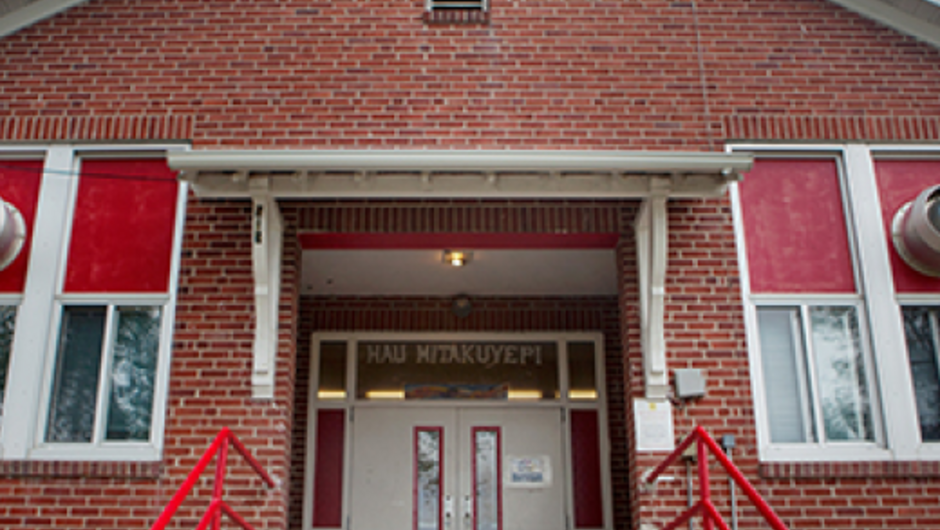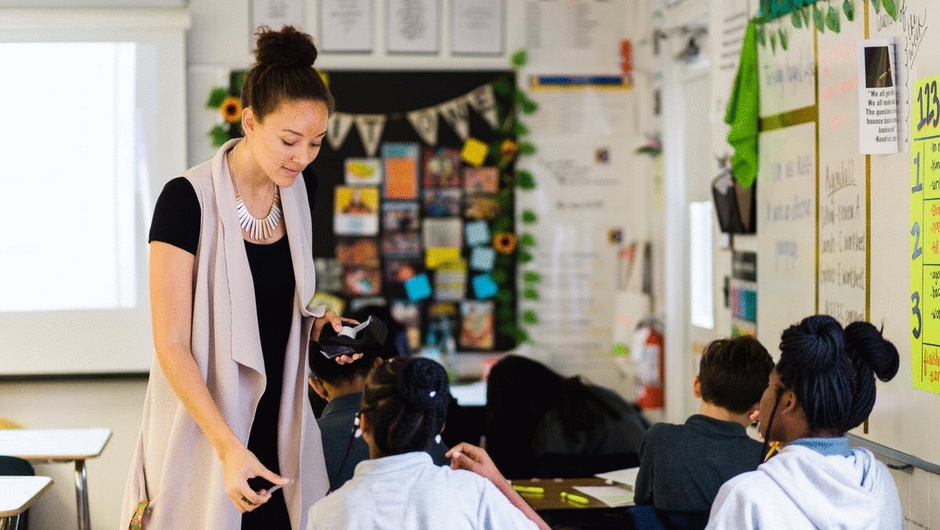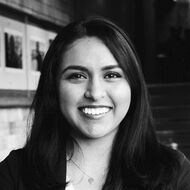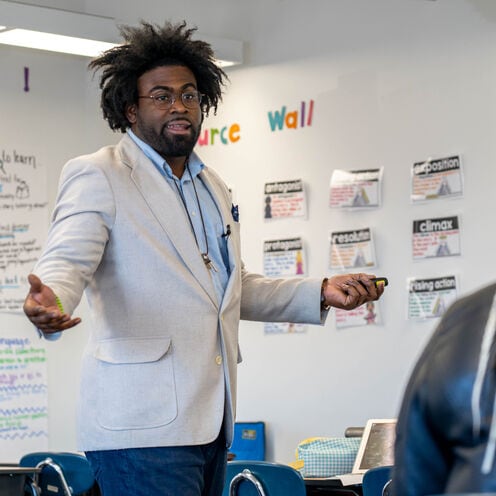
Season 2, Episode 3: A Black Man’s Classroom
We’re talking about how to address barriers that keep Black men out of the classroom.
Host Jonathan Santos Silva speaks with leaders and educators from Brothers Liberating Our Communities (BLOC) in Kansas City, MO about making teaching a sustainable career for Black men.
Inspired by the work of Sharif El-Mekki from the Center for Black Educator Development (you may remember him from this season’s first episode!), BLOC began curating professional development for Black men in education. Through connection, development, and engagement, the team has retained 100% of BLOC members. Founder Cornell Ellis and the team at BLOC hope that one day all students will have access to equal representation and revolutionary Black male educators.
Listen
View transcript
I grew up in Massachusetts in a small working-class city called Brockton. My friends were diverse and hailed from all over the world. Kids from the Cape Verde Islands, Haiti, all across Latin America, and even Europe. The classrooms that I shared with them were diverse, but the folks at the front of the classroom not so much. In fact, it wasn't until I was in 10th grade that I had a teacher who looked like me. A phenomenal Black woman named Ms. Welder. I never had a Black male teacher.
Many, many years later, I had the privilege to visit an elementary school in the greater Atlanta area. These kids were growing up in an environment where they would not share my experience. There were Black men and women at the front of virtually every classroom in this school, and many of these educators carried the title “Doctor” at the front of their names. As I walked those halls, I was struck with the idea that these young people would never question their right to belong in that academic space. That they were growing up having role models who looked like them to show them a path forward in education and beyond.
Today’s guests are committed to making education a more sustainable career for Black men and ensuring more young people have an experience similar to what I observed in Atlanta.
(THEME MUSIC IN)
JULIAN JOHNSON-MARSHALL, GUEST:
As we saw other people taking off, I think BLOC found us. And was like, "Hey, you want a jet pack?" 'cause we can go too. I was in the school system my first year teaching in Kansas City that really beat me down emotionally and mentally. And I did not feel competent or worthy to stand in front of kids. If it weren't for BLOC, I wouldn't still be teaching.
SANTOS SILVA:
From Teach For America’s One Day Studio, you’re listening to Changing Course. I’m Jonathan Santos Silva, a 2010 Teach For America alum on the Pine Ridge Reservation in South Dakota, and since leaving the classroom, I haven’t stopped partnering with educators, students, and communities to reimagine education.
This season, we’re talking to innovative nonprofits from across the country that are committed to attracting, training, and retaining BIPOC educators and providing opportunities where they can flourish.
We have so much to learn from leaders across America moving education in a new direction, and a change in course will happen one school at a time.
(SOUND BITE: SCHOOL BELL)
(THEME MUSIC OUT)
(MUSIC FADES IN)
SANTOS SILVA:
Brothers Liberating Our Communities better known as “BLOC,” was founded in 2016 by a group of Black male educators from Kansas City, Missouri. One of the BLOC’s cofounders is TFA alum Spencer Hardwick. Inspired by The Fellowship and the work of Sharif El-Mekki from the Center for Black Educator Development (featured in episode one of this season) BLOC’s initial mission was to simply connect local Black male educators.
Through socials and networking meetings, BLOC grew to over 150 educators in the Greater Kansas City Metro Area. BLOC also began curating professional development specifically for Black men in education, engaging them in their communities through mentoring, volunteer work, and tutoring opportunities. Through connection, development, and engagement, BLOC has successfully retained 100% of their members since its launch.
Today, we’ll look at how BLOC is intentionally addressing the barriers that keep Black men out of the classroom and working to make education a more sustainable career.
Let’s hear from our guests starting with Cornell Ellis, Founder and Executive Director of Brothers Liberating Our Communities.
(SOUND BITE)
CORNELL ELLIS, GUEST:
My name is Cornell Ellis. I am many things. I spend my time with students, mostly, because I, myself, am a student. I'm not a religious person, but I'm a spiritual one, and I've been gifted two beautiful children. They are both small. My daughter will be one, my son'll be four, and my organization will be five soon. My other baby.
Brothers Liberating Our Communities was co-founded by five or six guys, Black male educators, after being inspired by the work from some gentlemen doing similar work on the east coast in Philadelphia. Shout out to the Center for Black Educator Development, Sharif El-Mekki, and we came back to Kansas City, Missouri, and said, "We got to do it here, in our town." And so, God blessed me to be able to step out and do it full time three years ago. And so, as an educator for over a decade of English and language arts, I realized that there weren't enough Black educators having conversations about Black kids, about Black problems and Black solutions. So, I decided to step into that space as best as I could.
So, who told me to be a full-time, founding Executive Director and raise two kids at the same time? I don't know. God did.
SANTOS SILVA:
(laughs)
SANTOS SILVA:
Although Cornell now works full-time at a groundbreaking nonprofit dedicated to creating opportunities for Black male educators, he says his own education experience was tumultuous.
ELLIS:
I didn't like school. I was good at it, and I think as an educator now, you see shells of yourself in students. These kids that are finished with the work in five minutes, and they got something better to do, right?
SANTOS SILVA:
(laughs)
ELLIS:
And, “No, I don't remember for the test. No, what test? I don't care about no test, lady.” That was me, and, boy, did it worry my father. Because the experiences for Black men in the United States is a dismal one, right? His worry was warranted. I was kicked out of a couple schools in middle school and my dad decided to homeschool me, and that was one of the first times that I enjoyed school a little bit.
SANTOS SILVA:
Cornell was homeschooled by his father for a year in the seventh grade. Shortly after, he attended a private, predominantly white all-boys school in Kansas City. Out of 1000 students, he was one of only 30 Black boys.
ELLIS:
My first day at Rockhurst, I had never seen that many white people, Jonathan. It was like my first time being in that space. And so, that was really where I started to experience disparities.
After high school, I was a high school athlete, and so I went to the University of Missouri to play college football, and I still hated school, y'all, but my father, the one that really pushed me to be in school, passed away my senior year of high school.
And so, I was really at a loss when I left high school, heading into play college football. I ain't even know how to get up and, you know, set my alarm, and, I didn't even have the discipline to show up to a 8:00 AM class, you know? So, I didn't. (laughs) Simple as that, and I dropped out of college pretty quickly.
I was struggling with depression, and anxiety, and grief, and trauma, and I didn't even know these things really even existed yet, as a young, 21-year-old, 20-year-old kid.
And I actually got a phone call from a local university here in town to ask me to come back and play football again. They called me and said, "We want to pay you to come back and finish your degree." I said, "There ain't nothing but God," so I showed up on campus, and got a couple history degrees, won an award for best history student, and finally realized why I didn't ever like education.
SANTOS SILVA: His realization may seem obvious in retrospect, but it represents the experience of so many Black students across the country.
ELLIS:
I was standing or sitting in classrooms led by people that didn't look like me, reading about people that didn't look like me, and hearing implicitly that I didn't belong in a system, didn't contribute to a society that I lived in, and that I didn't have anything currently to live up to or to have any type of motivation towards. And, whether that message is explicitly told or implicitly told to children across the country as students, it's a message that's received, no matter what race, or ethnicity, or identity you hold. So, I decided that being an educator would be the best way for me to change that narrative.
And so, I started teaching, and like I said before, as a teacher, I was the only Black man in the school teaching a certified content. I was the middle school English language arts lead, and I coached a team of four white women. Most of them had bias and prejudice that they still had not overcome, in terms of even recognizing me as a legitimate leader and a valid voice in the English language arts space.
And so, I knew if it wasn't acceptable for me, it shouldn't be acceptable for other men that looked like me, and I also knew that if I was making this type of impact that other men were also making that type of impact, and conversely, I also knew if I was going to leave and create a vacuum of that impact, then the other Black men that I saw in a revolving door, year after year after year after year, after three years at my previous school, I was the most tenured Black man in the building, you know? So, I knew that when I leave, that impact is felt, also.
And so, for me, it was a easy conclusion. If we can increase the impact that people like me have on school buildings, maybe we can change the way schools look and change the way school outcomes are perceived.
SANTOS SILVA:
From your vantage point, having been in the classroom, having been a leader in a school setting, and now, supporting the development and the retention of Black male educators, what do you see as some of the unique challenges that Black men face in education?
ELLIS:
They're that unique to all educators' problems. They're exacerbated and unique because of our unique identities, right? All teachers deserve more money.
SANTOS SILVA:
Hm.
ELLIS:
When you think about the positioning and the context that I have in my family as a ... Living in a patriarchal society as the "breadwinner", and then also living in the midst of generational poverty, where, as a Black male with a dead father, a widowed mother, right, what is now my role, as with one sister, what's now my role as the head of the household, essentially?
SANTOS SILVA:
Hm.
ELLIS:
Of two households, right? And now, as an educated, executive, how do my expectations multiply tenfold for what I'm able to provide for not only my own family but for the community around me, and for the betterment of, my extended family, right?
Money is one thing, right? I think school environment and navigating dominant white spaces is another. As two men with locs, right, we still have to understand that people call them dreads, right? I do consulting at local school districts. These young Black boys come up and hug me for no reason.
SANTOS SILVA:
Hm.
ELLIS:
They ain't ever seen me a day in they life, and they're hugging me, right? First graders, kindergartners, because they're lacking something, right? And whether or not they're supposed to get it at home, or whether or not they're supposed to get it at school is up for another conversation. I'm gonna give it to 'em wherever I am, wherever I find 'em, right?
And so, there's two issues that are uniquely then we can dig into, right? One, it's a unique positioning among white colleagues, white female colleagues, white female higher ups, and two, there's a social-emotional disposition that I have to take on as the surrogate fathers, uncles, and brothers for every Black kid in the school, and not just Black kids, every kid in the school, right? So, we'll dig through one first.
As a lead for a middle school English language arts department, my authority was questioned, and my knowledge was, at every turn, attempted to be invalidated.
SANTOS SILVA:
Hm. Well, because you, in many ways, you referenced it, as two brothers with locs, that physical profile, that phenotype, their probable experience is you were maybe the behavioral specialist at the last school-
ELLIS:
Maybe.
SANTOS SILVA:
... to be not only in academics, but then to be in English language arts certified as the head of the department or the lead, that goes against probably most of those women's experience. It's not a common experience to see a brother like you in their, in a classroom, never mind in a leadership role.
ELLIS:
And, their experiences translate to their beliefs. And so, now, right, and this is where the pie gets baked, they step into ELA classroom with babies that look like me, and what do they believe about them?
SANTOS SILVA:
Hm.
ELLIS:
Because what you believe about me, while you're going behind my back to talk to my manager about what I asked you to do in a meeting and what decisions I've made about curriculum in order to ensure that it's right, and that it's valid, and that I'm doing what I'm supposed to be doing, because you don't believe that I should be in this position, what are you saying to those babies in your classroom? Implicitly or explicitly.
SANTOS SILVA:
Right.
ELLIS:
You may have never, ever told a Black kid in your life that he was dumb. Have you ever told one that they was a genius?
SANTOS SILVA:
Hm.
ELLIS:
Sometimes, it's about what you don't say.
SANTOS SILVA:
Right.
ELLIS:
I literally told a young Black girl this morning, "Look girl, you are the smartest kid in the room. Anybody ever said it to you?" And, I had to fix myself, because, like, "You the smartest girl in the room." I said, "No, no, no. Smartest person in the room. Anybody ever told you that?" She said, "No, not really." I said, “I’ve been sitting in here for 15 minutes, and I can tell, you're the smartest person in the room, and don't you ever forget it. You know, they ain't ever even been told that.
SANTOS SILVA:
Right.
ELLIS:
So, while you may not be calling your kids felons, are you calling 'em engineers? And so, the second piece, for me, is then, what is that social-emotional health for me, as I'm pouring into kids like that constantly, daily, repeatedly over years, decades-
SANTOS SILVA:
Right.
ELLIS:
... what type of toll does that take on me, and how do I take this work home? How do I, how do I separate?
SANTOS SILVA:
Right. Yeah. I mean, I think about, you know, what is the ongoing support that you would have benefited from as you're playing that role, that surrogate father or surrogate uncle role in so many kids' lives, right, as they deal, you know, and then you have to process vicarious trauma and pain that they may be bringing in. And, also, I don't know if this was your experience, but I know it is for a lot of brothers in education, then there's the unpaid role that you may be asked to play in the school as the chief disciplinarian. Every single behavior becomes a Mr. Ellis problem, as if you're not also doing curriculum, teaching classes, leading your team, and often times, that's a hat that you wear. It's not a stipended, extra position.
And so, then, you're not only expected to deal with that behavior, but you're also maybe expected to apply a behavioral approach that might not be the one that you naturally would lean to. It may be a little bit more punitive, a little bit more aggressive than you would naturally want to. And then, well, why, how come you handle it like this? How come you didn't do it like that?
ELLIS:
Our very first professional development we ever did, I'll never forget it, back in 2016, was the Black male tax.
SANTOS SILVA:
Hm.
ELLIS:
And now, there is actual data out that supports it. DonorsChoose actually did the data, actually did a study a couple years ago that quantified these numbers, right? Black men and men of color are spending more time doing more roles than other people. And you're absolutely right, and then add on top of what you talked about.
I do love sports, so I am coaching a team. I do appreciate equity and diversity, so I did found the equity and diversity committee here, and I'm the chair, and I create PD for equity and diversity, along with my ELA team, and I'm expected to lead all of those PDs, as well, and plan Black History Month, right? Like, all of these things are extra hats, and I gotta go break up the fight, and I gotta go do cafeteria duty, and when the principal's not here, now I'm the principal, right? Like, when the dean's not here, now I'm sitting in ISS room, because nobody else can handle Johnny, right?
Like, all of these roles, and it goes back to that social-emotional health piece, take on a tax, an extra tax in education, that ends up being not worth it. I'm already not getting paid for it. I make $38,000 as a starting educator. This ain't worth not only my time, I'm at school from 6:00 to 6:00, but now, I literally am in tears at night, and I can't do that. So, one of the questions you asked was, like, how does that support look? What is the support that I would have needed? I think that's exactly what BLOC is. We tried to build exactly what I would have liked to have.
At the end of the day, teachers want to come to a school where kids are happy, and kids are learning, where there's a feeling of welcome-ness and inclusivity, right? When those feelings are present for your staff, they're present for your students, as well, right? And that's in no particular order. Staff happiness and student happiness are inextricably entwined, right? A lot of people say, "Teachers set the weather." Yeah, that's true, but kids carry umbrellas.
SANTOS SILVA:
(laughs)
ELLIS:
So, make sure that you know what they need too.
(MUSIC FADES IN)
SANTOS SILVA:
Community sets the tone of an environments culture and that directly impacts the kinds of spaces that either repel or attract teachers.
Here are some of the ways that BLOC cultivates a diverse and healthy community for their staff and students. First, they are intentional about where they source leaders, opting to find leaders at HBCUs or other ethnically focused universities. Next, they create affinity spaces, knowing that BIPOC leaders feel more supported when they are not consistently the only POC in the room. Lastly, they facilitate similar affinity spaces for students as well.
After the break, we’ll continue our conversation with two more leaders from BLOC but first, we wanted to ensure you hear from students across the country who are being impacted by teachers who share their identities. Throughout this season, we’ll be lifting up the voices of students of color as they reflect on their experiences.
Here are some words from Billy Rushing from Kansas City, Missouri.
BILLY RUSHING, GUEST:
It was pretty inspiring to have a teacher who shares the same skin color as me because it made me think that maybe one day I could be in that teacher's position. And it's not just the teacher, it was multiple positions that I've seen. Like being a principal or maybe even being a doctor. I've had a lot of teachers, who shared the same ethnicity as as I have, and it just made a huge impact on my life and it's definitely helped me and open my eyes to what I could be later on in life.
(MUSIC FADES OUT)
MIDROLL AD BREAK
(THEME MUSIC FADES IN)
SANTOS SILVA:
Let’s meet our next guests starting with Spencer Hardwick, a 2011 Dallas-Fort Worth TFA Alum. He’s now the Senior Managing Director & Chief of Staff at Teach For America and one of BLOC’s cofounders.
(THEME MUSIC OUT)
SPENCER HARDWICK, GUEST:
My name is Spencer Hardwick. I am a Christian, a father, a husband, and from Kansas City, Missouri, born and raised and I also fashion myself to be an educator even though I haven't formally been a teacher. For the past few years, I've been at Teach For America, helping to cultivate, recruit and train educators.
And so, I host a lot of different roles internally within the organization. But the essence of all of it, is in service of helping educators in and around Kansas City, and frankly, around our nation, do what they do best.
SANTOS SILVA:
One of those educators is Kansas City native, Julian Johnson-Marshall. He is the Educator Development Program Manager at Brothers Liberating Our Communities.
Johnson-Marshall:
I am first and foremost a father to a beautiful two-year old girl. I am a minister. I currently serve as a high school English teacher but that's not the extent of my teaching. I am a hip-hop believing, Jesus stomping, love speaking, loud talking, Black man from Kansas City. And that's just kinda how I move.
SANTOS SILVA:
Julian, Spencer, and Cornell have a unique connection. They all attended the same prestigious high school.
JOHNSON-MARSHALL:
I think our experience as learners was a lot of times, defined by having to put on for your race, right. Because we were granules of pepper in a sea of salt at the school we went to. So you have to put on for your race. But at the same time, we're doing that level of identity work.
We also had to like, combat the aggressions. And I don't even wanna say, microaggressions. Like, the aggressions that we did not belong in that space, that we took space from someone else. For me, those aggressions kinda followed me with where I went to university, but it was at university that I found a vision of what freedom could look like inside of the classroom 'cause that was when I had my first Black male educators. Four, five years later, it was that same educator that I met, Dr. Casey Majay, and, Dr. Ryan Kelly. Those two guys, coming out of graduation, were like, "If you're not gonna be a lawyer, I think you should teach." And that's where I went.
And here we are seven years later like, Yeah, they were right. I definitely should have taught. (laughs) It should have been my major.
HARDWICK:
I had the privilege of attending a number of different schools and school systems. Charter schools, the local public school district, a private school, and so I was privy to a lot of different education experiences in Kansas City.
And by the time I got to college, what I noticed was a lot of folks that had come with me on different parts of that journey, in and outside of the school, were in college alongside me, or pursuing different trajectories that are traditionally post high shool. And I noticed that a lot of the folks who were getting the least traction along that pathway looked like me. And frankly, had a lot more talent than I did.
So, a lot of brothers and sisters that I came up with were not getting to these places that were ordained as success by society.
JOHNSON-MARSHALL:
Mm-hmm.
HARDWICK:
And I wondered why that is. I really struggled with it because I knew these guys were smarter than me and more talented. But for whatever reason, the great algorithm that was our education system was putting me in these spaces and not folks like them. And so, similar to Julian, was supposed to become a lawyer in a lot of different ways, but knew that I needed to further investigate and interrogate why it was that the system had failed so many of my brothers and sisters and peers that I've come up with.
JOHNSON-MARSHALL:
Mm-hmm.
HARDWICK:
And so, that led me to teaching and getting a front row seat into better understanding, what the profession was, what were the obstacles within the systems that were preventing what I thought were getting the folks that need to be at the schools in different places beyond high school. What was preventing folks from unlocking those avenues. And you know, being that Cornell and Julian and I, all kind of came up together, I think we had a similar value set. In some ways, I would say, the BLOC found us. Cornell is the original founder of the BLOC. But I think the idea of who we were, as Black men navigating our education system, it became a natural vehicle for us to better explore-
JOHNSON-MARSHALL:
Yes.
HARDWICK:
... different ways to create spaces and advocate for something that we've seen since our own schooling experiences.
JOHNSON-MARSHALL:
Yeah, yeah. I think similarly, 'cause I don't know where you went to elementary school. But like, I went to, it wasn't until I was in maybe my sixth or seventh grade that my student populations were diverse. Like, I had white teachers, but like, for the most part, I was going to school with all Black and Brown folks. And then it was somewhere around middle school that it changed and I saw that switch happen. And I saw other folks that didn't look like my friends and looked like my family, started to take off academically. As we saw other people taking off, I think BLOC found us. And was like, "Hey, you want a jet pack? 'Cause we can go too.”
And I wouldn't still be a teacher if it weren't for BLOC, if I'm gonna be completely honest. I was in the school system my first year teaching in Kansas City that really beat me down emotionally and mentally. And I did not feel competent or worthy to stand in front of kids. So if it weren't for BLOC,, I wouldn't still be in the system. I wouldn't still be teaching.
SANTOS SILVA:
BLOC’s strategy has three layers: connect, develop, and engage. The first layer “connect” involves social spaces where Black men can come together to “talk shop” and find solutions for issues in their classrooms.
JOHNSON-MARSHALL:
Guys can just come and be, talk about their kids, talk about, their biological kids, the kids at their school, watch the game, hangout, celebrate the successes,
SANTOS SILVA:
The second layer “Develop” goes beyond the typical professional development. Instead of discussing lesson plans and school protocols, PD at BLOC looks more like discussing real life experiences of Black and Brown men and children and figuring out what’s needed within the classroom.
JOHNSON-MARSHALL:
So this year, we have embarked on a professional learning journey called, The Break. It's where we use hip-hop culture to set the conditions for authentic learning and expression. This professional development journey is all rooted off of Kendrick Lamar's Mr. Morale & The Big Steppers.
How do we set the conditions for authentic learning? Like, what do, what do we need as adults? What do kids need, just to be authentic in a space? Those are conversations that we're not always having inside of the school, right.
SANTOS SILVA:
The final layer is “Engage”.
JOHNSON-MARSHALL:
We engage beyond just, let's kick it and let's get you a couple tools that you can use tomorrow. How do we keep you engaged in the process of learning?
SANTOS SILVA:
One of the cornerstone fellowship program’s BLOC offers is Akoma Ntoso where participants meet monthly to further their education through one-on-one coaching, individualized learning tracks, and leadership development.
JOHNSON-MARSHALL:
Akoma Ntoso is a West African symbol that means linked hearts, right. So, before we talk about the technicality of what happens in this fellowship, let's first root in the liberation of the heart space, right? Let's first root there.
This fellowship is for burgeoning and for even like myself, seasoned educators, right, who want more. Who just want more. Who want a deeper connection to the work that they do, okay. BLOC's whole thing is like, we want to liberate our community. But when we say liberate, what are we trying to liberate? The ways of thinking. The ways of feeling, right? How do we navigate identity? How do we feel free inside school and learning spaces and environments?
So, that linked hearts idea is for the folks that are in the fellowship, you are linking your hearts with the other fellows. You are linked to a mentor. You are linked to the fellowship director. And you are linked even further to the legacy of continuing education, right, in the Black and Brown community. And what education really means for us, right. We know it to be the great equalizer. And we also know it to be the great stratifier, right. Khalil Gibran said, "The teacher that is indeed wise does not bid you into the house of his own wisdom, rather entreats you to the threshold of your own."
HARDWICK:
Yup, bingo.
JOHNSON-MARSHALL:
So, how do we push, right, educators to see the value and the wisdom of their own experience, right? So I wanna start there, right, 'cause that is the heart space, that is the heart of this fellowship. Now technically, what the fellowship provides is financial support to go get a degree, to go get your next degree, right. It is professional learning experiences that puts you in space to give you the development you need, right, to go be free in a classroom. Though, that professional development looks like, Spencer said, it's very different.
For me, a sixth, seventh year teacher, my mentor is a high school principal. He and I are talking about, what are the steps that I need to be taking to be better in curriculum and instruction design. Whereas, my fellowship brother is a Director of Admissions. And his mentor is a Dean of Students, right. They're talking about, how do we keep connections with families and supporting families. And feeling like, the school is a place where they can feel safe to come and drop their kids off, right. So, it looks very different for what you need professionally.
The ultimate end goal is that at the end of these two years, guys walk away with their credentials that the need for their next step in their career. With the training and the verbiage, right, to navigate the space. And I would say, the fortitude to stay in the field a little bit longer. Not even a little bit, a lot a bit longer.
I'm an Akoma Ntoso fellow, right now, and that engagement allows me to have, set, I believe a set of friendship in a community that's gonna be a 20-year run. Like, the guys that I'm in the fellowship with right now, we know each other's kids. We know each other's significant others, right. We know where each other wants to go in life. And we are consistently in communication. That's unheard of. That's a different level of engagement when it comes to communities of educators.
SANTOS SILVA:
So what exactly does success look like at BLOC?
JOHNSON-MARSHALL:
My success story comes in one seeing a mirror and a reflection of myself. But then, two, being able to be an extension of a legacy, right. I am new to the field of education, but we, it, it's true, right, to our people, to our history, for us to learn.
So, I think there is a legacy of recognizing genius and pulling that genius out of young people and out of the adults in our space that makes the BLOC success story so important, right. 'Cause we get the mirror and we get the legacy. And you get to build into it, and you're active. You're a owner of it, right. You're not just a participant. It's yours. This is a very personal experience.
HARDWICK:
So, that's the exciting gambit of what the BLOC, and I think this is all about, is the chances are, if you're listening to this podcast, you've read the statistics and know how, you know, the Black experience is complicated by how we show up at work. I think what's really uplifting about the BLOC is that it creates a pathway for us to do that work in the way that we were designed by God to do. While also over time, having a more meaningful, effective and purpose-driven role that lasts longer in that school system.
I call it the Wakanda paradigm. We've all seen superhero movies. We've all had Black folks in movies for quite some time. We've had Black directors. But seeing it altogether, it was kinda like, “Dang, you could do it like that? You can write a script like that? You can have a villain character like that? You can have superpowers like that?”
I would argue that a similar phenomenon occurs when teachers of color more generally, but especially Black men are in these classrooms. I've had more than a few students kind of have come out to me later and say, "I wanna be a teacher." And I know that, that's because of the example set forth by folks who they identify with along different lines of difference, that helped them better illuminate what was possible in a classroom. “Oh, you don't have to teach a lesson always like that,” you know. Just like this Black Panther, what makes it special is that it's still a movie, still a superhero movie, it's still a Marvel movie, but it's different.
When you walk into Julian's class, it's still a classroom, but it's different. And that transports our students and builds on their imagination of what's possible, just in the walls of our classrooms.
(MUSIC IN)
SANTOS SILVA:
We know that there are many obstacles out there that make it difficult for Black men to either enter or remain in the classroom. There are a lot of challenges connected to the way “the system” operates. Sadly, there’s likely not just ONE thing that will change it, but we challenged our leaders today to dream anyway. We asked them to tell us what is ONE thing they would address if they had a magic wand.
Here are Cornell, Spencer, and Julian with some final thoughts:
HARDWICK:
Instead of saying, this school has this many PhDs and this type of academic quality, was on this ranking list…Oh, this student body is incredibly diverse. And as important as the product is inside of the child's classroom, who they're learning alongside and what context they're learning in, matters equally if not, more.
And so, you would see I think a radical redistribution of how power is meted out in our education system, what kids learn and the types of people they graduate to be, and the type of society that we become from that.
JOHNSON-MARSHALL:
Mm-hmm.
HARDWICK:
So, I would be more so changing the mindsets and the selection preferences and thought patterns of our parents, as a key lever towards transforming everything else.
JOHNSON-MARSHALL:
If I could change anything it would be routes to certification, and who we want to put in front of students. These buildings that we have several hundred thousand of in this country, have become the starting place of socialization for so many children, but they do not look like the world in which they're gonna graduate into. Our schools do not promote the same grace and flexibility that you might have, um, to get into other fields. Education is one of the hardest fields to get into. I mean the only thing I might put in front of it is medicine or law, because it's just that stringent.
And that ultimately ends up hurting kids because for Black men like myself, who graduated with a 2.3 from undergrad, it's difficult to get into the teaching field. It's extremely difficult because of GPA requirements and so many other requirements that go along with certification. It's just, it's not sustainable. And it's going to burn the field out.
SANTOS SILVA:
Speaking of burnout, when asked the same question, Cornell seemed to have the solution to this problem.
ELLIS:
I know the first thing that came to mind was pay, right? Of course. I think, like, if you gave teachers $100,000, we could fix a lot of problems, but then you'd have teachers that are coming to schools just for the pay, and we already got teachers that come just to save Black people. We don't need no more half-hearted people in the profession, right?
I honestly think the quickest, easiest way would be to go to a four-day work week. And, it's becoming more and more popular now, and like, I am going to have to go do some more reading around, like the drawbacks, but from all the research I've seen, it just creates more sustainability around education.
SANTOS SILVA:
Hm. Well, thank you for being on the show with us. Thank you for sharing your wisdom and your story with us, and most importantly, thank you for sharing the vision of the BLOC that you and your brethren put together with your world, because you're doing, you're doing important work. I think, you know, it's God's work.
ELLIS:
Thank you.
JOHNSON-MARSHALL:
Thank you so much.
HARDWICK:
Thank you. It's been a blessing and a privilege. Thank you.
(MUSIC OUT)
SANTOS SILVA:
When the pandemic put our world on pause in 2020, schools across the globe pivoted. Things we never thought could be done were accomplished because we made necessary adjustments to meet the needs of students. I believe creating a more diverse teacher workforce will require something similar. What’s needed most now is a sense of urgency and a willingness to think outside the box.
We are at an inflection point in education where so many people are walking away from the classroom and so many teaching positions are left unfilled. Urgency is necessary to not only recruit talent but to create an environment where traditionally marginalized or underrepresented teachers, like Black men, can thrive.
BLOC ultimately hopes that one day ALL students will have access to equal representation and revolutionary Black male educators.
(THEME MUSIC FADE IN)
SANTOS SILVA:
That’s it for this week. Thank you so much for listening to Changing Course, from Teach For America’s One Day Studio. I’m Jonathan Santos Silva. Peace.
(SOUNDBITE: SCHOOL BELL)
SANTOS SILVA:
Next time on Changing Course, we’re taking you to Newark, New Jersey. We look at how one nonprofit is preventing burnout by addressing toxic work cultures that steer BIPOC teachers out of the classroom.
WENIMO OKOYA, GUEST:
What we're trying to do is really shift school cultures to help administrators build systems that are supportive for the wholeness and the being of educators of color so that we're not, you know, doing all this work to, go one to one, making people feel better about their experience or counseling them into just thugging it out and pushing through their experience.
SANTOS SILVA:
That’s next time on Changing Course. And if you loved the podcast, be sure to rate, review and follow ‘Changing Course’ on Apple Podcasts, Spotify, or wherever you get your podcasts.
Changing Course is produced by Teach For America’s One Day Studio in partnership with Pod People. Special thanks to my main man, Michael Kress, Craig Hunter, Georgia Davis, Stephanie Garcia, and Akande Simons from Teach for America, and the production team at Pod People: Rachael King, Matt Sav, Aimee Machado, Bryan Rivers, Danielle Roth, shoutout to Chris Jacobs and Shaneez Tyndall, and Carter Wogahn.
Special thanks to Julie Gronquist-Blodgett, Executive Director of Teach for America’s Kansas City region, who connected us to BLOC. And last but certainly not least, thank you to Billy Rushing and the leaders at BLOC Kansas City who shared their time and experience to help us make this episode: Cornell Ellis, Spencer Hardwick, and Julian Johnson-Marshall.
I’m Jonathan Santos Silva. Peace.
(THEME MUSIC OUT)
Copyright © 2022 Pod People. All rights reserved.
Pod People transcripts are created on a rush deadline by a Pod People contractor. This text may not be in its final form and may be updated or revised in the future. Accuracy and availability may vary. The authoritative record of Pod People’s programming is the audio record.
Don’t miss an episode! Subscribe to our podcast insider newsletter.
The monthly ‘One Day Today’ newsletter features our top stories, delivered straight to your in-box.
Content is loading...
About The Show
Host Jonathan Santos Silva (South Dakota ‘10) will sit down with innovative nonprofits from across the country that are committed to attracting, training, and retaining BIPOC educators. Each episode will feature thoughtful conversations about how organizations are investing in and providing careers where BIPOC staff can flourish.
Jonathan Santos Silva (South Dakota ‘10)
Jonathan Santos Silva is the Founding Executive Director of The Liber Institute and creator and host of The Bored of Ed, a podcast that amplifies the voices of inspiring BIPOC educators who are changing the face of education. He has provided technical support to South Dakota’s Native American Achievement Schools and has served as a school founder and principal, instructional coach, and education consultant.
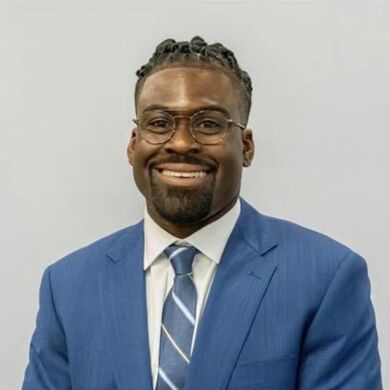
Cornell Ellis, Co-Founder and Executive Director of Brothers Liberating Our Communities
As Co-Founder, Cornell works toward the organization’s goal to increase the number of Black Male Educators in the education systems. Cornell was born and raised in Kansas City, MO and teaches African American History to juniors and seniors. It is important to Cornell that all students receive the opportunities they deserve to be successful.
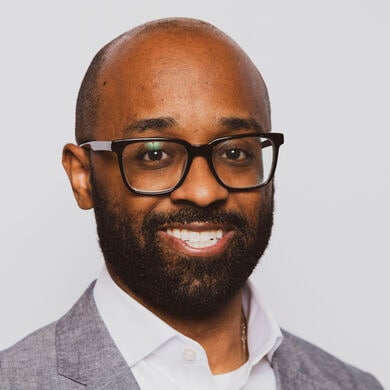
Spencer Hardwick (Dallas-Fort Worth ‘11), Senior Managing Director & Chief of Staff at Teach For America Kansas City and BLOC Co-Founder
Prior to joining TFA staff, Spencer was a 5th grade math teacher at the Ewing Marion Kauffman School in Kansas City. He also worked at Goldman Sachs as an institutional sales analyst in New York, NY. Spencer is also a TFA alumnus and taught in Dallas through the Uplift Education charter school network during his corps years. He graduated from Harvard in 2011 with a Bachelor of Arts in Government and a citation in French.
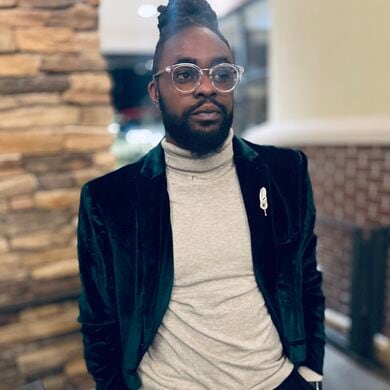
Julian Johnson-Marshall, Educator Programming Manager for BLOC
Julian is a hip-hop-loving, Bible-believing, and love-sharing father, teacher, and preacher. He is a native of Kansas City, MO, teaches 11th and 12th grade English, and also serves as Community Partnerships Liaison for Kaye’s Learning Corner. It is important to him that in all areas of his professional practice, young people have the opportunity to discover and demonstrate their most authentic identity.
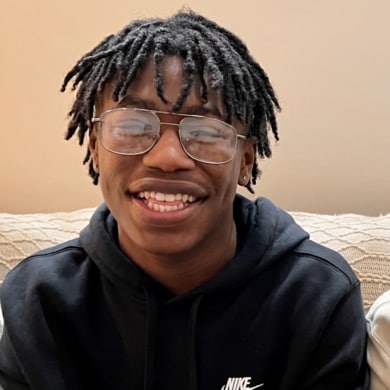
Billy Rushing, Senior at DeLaSalle Education Center
Billy was born and raised in Kansas City, MO and has attended DeLaSalle for the past two years. After graduation, he plans to go to college to pursue his nursing degree so he can help people get and stay healthy.
Sign up to receive articles like this in your inbox!
Thanks for signing up!
Content is loading...


